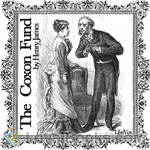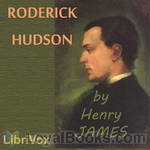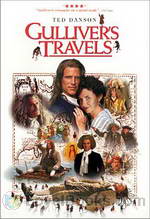|
Books Should Be Free Loyal Books Free Public Domain Audiobooks & eBook Downloads |
|
|
Books Should Be Free Loyal Books Free Public Domain Audiobooks & eBook Downloads |
|
Fiction |
|---|
|
Book type:
Sort by:
View by:
|
By: Henry James | |
|---|---|
 Sir Dominick Ferrand
Sir Dominick Ferrand
“Levity” is not a word often applied to Henry James, but this story has about it an attractively lighthearted quality. It tells of Peter Baron, a poor, young struggling writer of adequate, if not transcendent, talent, who lives in a dreary London boarding house inhabited also by a mysteriously clairvoyant and beautiful young widow, with her small boy. When Baron buys himself a second-hand writing desk to stimulate the creative juices, he finds carefully hidden within it a cache of letters that appear to compromise a recently deceased statesman... | |
 The Bostonians (Vol. 1 & 2)
The Bostonians (Vol. 1 & 2)
This bittersweet tragicomedy centers on an odd triangle of characters: Basil Ransom, a political conservative from Mississippi; Olive Chancellor, Ransom's cousin and a Boston feminist; and Verena Tarrant, a pretty, young protégée of Olive's in the feminist movement. The storyline concerns the struggle between Ransom and Olive for Verena's allegiance and affection, though the novel also includes a wide panorama of political activists, newspaper people, and quirky eccentrics. | |
 The Coxon Fund
The Coxon Fund
This novella explores the relationship between Frank Saltram, a charismatic speaker who is also a freeloader; Ruth Anvoy, a young American who visits her widowed aunt, Lady Coxon, an American who married a Brit; and George Gravener, a British intellectual with a future in politics who becomes engaged to Ms. Anvoy. The story revolves around the dispersal of The Coxon Fund, a sum of money left by Ms. Anvoy’s father with the stipulation that is be given to a great man to publish and pursue moral truth. | |
 Roderick Hudson
Roderick Hudson
Published as a serial in 1875, Roderick Hudson is James's first important novel. The theme of Americans in Europe, so important in much of James's work, is already central to the story. Hudson is a young law student in Northampton, Massachusetts, who shows such surprising ability as a sculptor that the rich Rowland Mallett, visiting a cousin in Northampton, decides to stake him to several years of study in Rome, then a center of expatriate American society. The story has to do not only with Roderick's growth as an artist and the problems it brings, but also as a man susceptible to his new environment, and indeed his occasional rivalries with his American friend and patron... | |
 Some Short Stories [by Henry James]
Some Short Stories [by Henry James]
| |
 The Tragic Muse
The Tragic Muse
| |
 The Bostonians, Vol. II (of II)
The Bostonians, Vol. II (of II)
| |
 The Lesson of the Master
The Lesson of the Master
| |
By: Henry james (1843-1916) | |
|---|---|
 Awkward Age
Awkward Age
Nanda Brookenham is coming of age, and thus 'coming out' in London society - which leads to complications in her family's social set in London's fin de siècle life. James presents the novel almost entirely in dialogue, an experiment that adds to the immediacy of the scenes but also creates serious ambiguities about characters and their motives. | |
By: Henry james (1843-1916) | |
|---|---|
 Chaperon
Chaperon
What on earth is a girl to do when London society has convicted her mother of a dreadful sin and has ostracized her? If blood is thicker than water, and the daughter remains loyal to her erring parent, how far will affect her own standing in society (and most important, of course) in the marriage market that is controlled by that society? This is the problem facing Rose Tramore and it will take all her charm -- and perseverance -- to solve it. (Nicholas Clifford) | |
By: Henry James (1843-1916) | |
|---|---|
 The Pension Beaurepas
The Pension Beaurepas
| |
 The Beldonald Holbein
The Beldonald Holbein
| |
 Eugene Pickering
Eugene Pickering
| |
 Georgina's Reasons
Georgina's Reasons
| |
 The Path Of Duty
The Path Of Duty
| |
 Greville Fane
Greville Fane
| |
 Nona Vincent
Nona Vincent
| |
By: Jonathan Swift (1667-1745) | |
|---|---|
 Gulliver's Travels
Gulliver's Travels
Comprised of four parts, Gulliver’s Travels documents the bizarre, yet fascinating voyages of Lemuel Gulliver as he makes his way through several uncharted destinations, experiencing the lives of the small, the giant, the scientific, and downright eccentric societies. Narrated in first person, Swift successfully portrays Gulliver’s thoughts and reactions as he faces struggles of integration throughout his travels. Beginning with the introduction of Gulliver, an educated ship’s surgeon, who after a series of unfortunate events is victim to repeated shipwrecks, desertions, and set adrift... | |
 A Modest Proposal
A Modest Proposal
A satirical essay written by one of the most renowned satirists, Jonathan Swift, A Modest Proposal expresses the author’s exasperation with the ill treatment of impoverished Irish citizens as a result of English exploitation and social inertia. Furthermore, Swift ventilates the severity of Ireland’s political incompetence, the tyrannical English policies, the callous attitudes of the wealthy, and the destitution faced by the Irish people. Focusing on numerous aspects of society including government exploitation, reckless greed, hypocrisy, apathy, and prejudice, the essay successfully exemplifies Swift’s satirical skills... | |
 Gulliver's Travels Into Several Remote Regions of the World
Gulliver's Travels Into Several Remote Regions of the World
| |